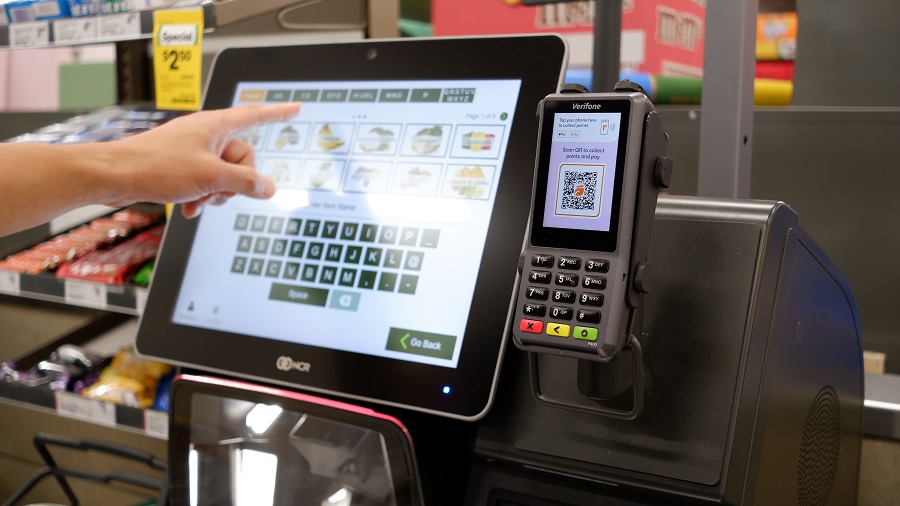23 Jan

Opening a store and deciding what point of sale (POS) system to use is an important moment for any entrepreneur. The right POS for your retail business acts as the central nervous system across your locations—unifying customer interactions and keeping your operation’s pulse on rising sales and profits.
Gone are the days of basic cash registers and manual inventory tracking spreadsheets! Modern POS solutions seamlessly handle omnichannel order processing, payments, powerful reporting, customer relationship management, inventory control, employee management, and advanced automation.
But with countless options on the market catering to retail businesses of varying sizes and specialties, selecting your ideal POS partner is no simple task. To avoid analysis paralysis when evaluating solutions, let’s first walk through core factors to prioritize for your specific small business needs. Having a checklist will help you objectively compare point-of-sale solutions for small businesses during demos.
When Do You Need a POS System?
If you’re opening up any type of retail storefront, you need some form of point-of-sale system to handle customer payments. Relying solely on a traditional cash register will hinder growth down the line. Modern POS solutions for small businesses offer many expanded capabilities beyond securely processing credit cards, debit cards, and cash payments.
A proper POS enables you to track inventory in real-time, analyze sales data, manage employee roles, create tailored discounts and promotions, build customer profiles, generate reports, integrate with other software platforms you use, and so much more. These functionalities are impossible to leverage from a traditional cash register.
So whether you’re opening up a clothing boutique, hardware shop, liquor store, or other retail establishment, investing in a retail POS system for small businesses should be one of your very first steps. The right system will truly empower your business success through invaluable data insights and automation that streamlines operations.
Important Factors to Consider When Choosing a POS System

All POS systems are not made equal! When researching options, be sure to evaluate the following aspects to determine what best POS for small business solution fits your store’s requirements:
Features
Conduct an audit of what features are an absolute must-have vs. nice-to-have. Key features like flexible payment processing, barcode scanning, inventory tracking, customer relationship management (CRM), purchasing management, sales/data reporting, employee management capabilities, loyalty programs, and ecommerce integration will enable you to run your store seamlessly as you scale.
Hardware
You’ll need to use hardware terminals like a tablet, desktop, or tablet-based register to operate your POS software. See if your preferred POS provider includes hardware or if you must purchase separately. Factors like battery life, processing capability, receipt printer connectivity, and chip reader inclusion are important when choosing POS hardware.
Number of Store Locations
If you’re a single boutique, that’s quite different than managing an expanding franchise of stores. Determine if the POS scales to accommodate one location or tier pricing to add additional stores down the line. Also, consider if the POS can enable centralized reporting to easily track performance across all locations.
Inventory Management
Accurate real-time inventory is key for retail stores to prevent stock-outs yet avoid overstocking. Beyond inventory tracking, look for advanced POS features like purchase order management, vendor/supplier management, and automatic inventory alerts. For specialized retailers like hardware stores, advanced inventory management functionalities are particularly crucial.
Integrated Payments
The best POS systems make payment processing simple through secure built-in tools or integrations. Understand payment acceptance costs, ensure chip cards/contactless payments like Apple Pay are supported, and confirm how tips can be handled.
Customer Data Insights
Modern POS systems capture extensive customer data from the very first purchase. Seek out tools to capture relevant data like contact info, order history, product/category preferences, and shopping habits so you can better cater to each customer.
Leveraging customer data will empower loyalty programs, targeted promotions, and personalized email marketing, and help optimize your merchandise selection – taking your small business to the next level through data.
Budget
Of course, cost is a concern when equipping a new business! Check if the POS provider lists pricing openly on their website. Many offer customized quotes based on your store’s requirements. Opting for a cloud-based POS system avoids the large upfront investment of purchasing software outright. But find the optimal balance between features and cost – don’t sacrifice capabilities to save pennies.
Benefits of Using a POS System
Beyond seamless checkout and payment processing at your storefront, today’s best POS system for small business solutions offers immense benefits through robust reporting and streamlined functionality – unlocking crucial small business success factors like:
Enhanced Business Insights
With reams of sales data at your fingertips covering transaction history, peak selling times, inventory velocity, customer details, real-time profitability, and more – your decision-making ability grows exponentially thanks to modern POS systems.
Omnichannel Selling
Many advanced POS systems provide ecommerce gateways or full website-building capabilities. Unify your in-person and online sales channels for ubiquitous access to your inventory system and flexible fulfillment.
Streamlined Operations
Automate mundane tasks like purchase orders and inventory updates so you can focus on big-picture strategy and customer service. And easily generate reports whenever you need data-driven direction.
Improved Customer Service
With in-depth CRM capabilities, retail POS empowers personalized interactions, targeted promotions, and rewards programs – enhancing customer loyalty.
Key Features to Look For in a POS System

Now that you know what to evaluate when comparing POS system options, let’s drill down on some “must-have” capabilities to empower your small retail business:
Robust Inventory Management
From purchase orders to transfers across locations to barcode scanning for simplifying counts – your POS system should function as the central inventory “source of truth” for your business.
CRM & Customer Loyalty
Capture every customer interaction and gain insights into preferences/behaviors over time. Use intelligence to power loyalty program rewards, personalized promotions, and marketing automation.
Detailed Sales Reporting
You can look into granular reports covering sales summaries, labor costs, profit margins, inventory analysis, taxes, top-selling items, individual employee performance, and customer details.
Customizable Receipts & Invoices
Print professional, branded receipts and invoices customized with your logo and messaging. Some POS systems also enable digital receipts via SMS or email.
Advanced Employee Permissions
Easily create employee accounts with specific permissions that dictate what functions staff can access for streamlined shift management.
Offline Mode Functionality
For resilience even if internet connectivity is disrupted, leading POS systems provide offline functionality and sync data once back online.
Hardware Freedom
Top-rated POS systems allow you to choose preferred hardware or switch down the line – avoiding locked-in terminals that can only run proprietary software.
The above overview covers the key considerations when choosing a POS system for your new retail endeavor. Taking time to evaluate critical factors around business requirements, features, hardware, scalability, integrated payments, data capabilities, and cost will ensure you select the right platform as a foundational piece of your budding small business.
Once installed, a proper point of sale for small businesses solution will level up operations through robust inventory control, sales insights, and customer relationship management – unlocking true growth.
As you evaluate options, we recommend taking a close look at Hana Retail which is purpose-built to empower small and midsize retail businesses. Apart from being a basic POS platform it also acts as a point-of-sale accounting software for your small business. Our platform boasts great functionality with cloud delivery and mobile access – all at an affordable price for small businesses. Sign up FREE now!





